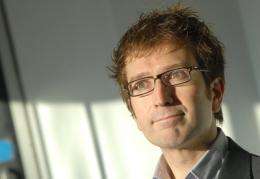Even radical Muslims rely on bearded stereotypes and BBC to understand Jihadists

New research by the University of Warwick and Royal Holloway finds that neither the general public nor even radical leaning Muslims have any real personal knowledge or understanding of real jihadists and both rely on stereotypes and what they can glean from the mainstream media to inform their understanding of what makes for radicalised jihadists.
How individuals are radicalised to commit violence has become a pressing question in the aftermath of the 7/7 London bombings, the Heathrow bomb plot, and numerous incidents in the UK and elsewhere. Perpetrators claim to act in the name of religion and for ‘jihad’ in particular. There is a thriving online jihadist media culture offering justifications for this violence. Yet aside from the occasional video statement from Osama bin Laden, or the same endlessly regurgitated clips of a foreign training camp, jihadist media are barely reported on in mainstream news coverage of terror events. Audiences remain largely in the dark about the jihadists who government and officials have told us we are at war against. If they are ‘the enemy’, why are they invisible to us?”
The University of Warwick and Royal Holloway research will be launched at a debate at Royal Holloway, University of London on 15 September at a workshop entitled, ‘Media and Radicalisation: Closing Symposium’. The findings will be presented from the two-year study of media and radicalisation led by Dr. Andrew Hoskins at the University of Warwick and funded by the Economic and Social Research Council (ESRC).
The main findings of the study are:
• Even jihadist sympathisers feel detached from the Al-Qaeda core. The jihadist media culture is made up of core websites featuring members who are committed without deviation or question to the jihadist campaign. Outside the core is a ‘grey zone’ of individuals who potentially have sympathy for the campaign but question the legitimacy of some violent acts, particularly violence that kills Muslims or civilians. The core members offer little guidance or recognition to potential sympathisers, who have to turn to mainstream media such as BBC or Al-Jazeera to find out what core Al-Qaeda have been doing.
• Journalists and experts remain uncertain about the nature of ‘radicalisation’. There remains little pattern to who is radicalised - it can be people of different ages, religions, levels of education, and socio-economic class, making prediction very difficult. Mainstream media, which must find facts to report, struggles when few facts are available and security services may be slow to release information. The result is news coverage that ‘clusters’ different signs of radicalisation, often taken from eye witnesses who may be unreliable: “he suddenly grew a beard”, “she became much more religious”, “they always met after Friday prayers”. Since these ‘signs’ apply to large numbers of people, mainstream news coverage may inadvertently contribute to stereotyping, particularly of British Muslims.
• Ordinary citizens do not trust news about ‘radicalisation’. Government and media portrayals of radicalisation are not credible or trustworthy to many ordinary citizens and UK news audiences are uneasy with the concept of radicalisation in their everyday engagement with politics and religion. So, if de-radicalisation plays a role in counter-terrorism policy in the UK and citizens are not convinced what radicalisation might mean in the first place, this has consequences for the effectiveness of UK security policy.
As new conflicts emerge, radicalised groups and individuals will find new ways to use media to justify violence, while journalists may need greater language skills and religious and cultural knowledge to make sense of them.
University of Warwick Sociologist Dr. Andrew Hoskins who led the research said: “There have long been debates about the practice and the ethics of reporting war, but in the last few years we have seen the rapid emergence of a ‘security journalism’ in the centre of a new relationship between terrorism, news audiences and policy-makers. Our research reveals that news reporting of issues related to ‘radicalisation’ has not helped to clarify its meaning or its legitimacy in the public understanding of Government strategy on terrorism. Perhaps, therefore, Government should drop its rubric of radicalisation altogether”.
Dr Akil N Awan added, “The absence of rigorous academic study of causes and processes of radicalisation means that both journalists and news publics have been forced to appropriate the term with little understanding or interrogation of what it actually means. This of course can be enormously useful for governments, who can then employ this ostensibly self-explanatory term to explain the appeal of terrorism to young Muslim males, rather than address genuine structural causes or grievance.”
The project involved analysis of the most important jihadist websites from 2004-09, an investigation of mainstream media coverage of events related to radicalisation, and an ethnographic study of audience understandings of radicalisation. Audiences were based on the UK, France, Denmark and Australia.
Dr. Ben O’Loughlin, said: “The focus today may be on radicalisation connected to Islam, but as new conflicts emerge in the next decade, we need to understand how those supporting violence for other causes, such as the far right, are using new media to reach potential sympathisers around the world.”
Provided by University of Warwick ( : )















